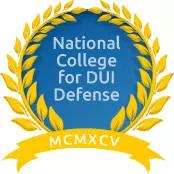Drivers should have a basic understanding of the implied consent law in Texas so that they know what to do when they are pulled over for suspected drunk driving. DWI in Texas is subject to this law, which is a part of the Texas Transportation Code.
Under this law, when you are issued a driver’s license in Texas, you are implicitly giving your consent to submit yourself to a chemical test if a law enforcement officer suspects you of driving while intoxicated. In other words, when you choose to drive on Texas roads, the state assumes that you have agreed to take this test if necessary. This article will explore the implied consent laws in Texas and help you understand your rights in the context of this regulation.
Refusing a Chemical Test: Is It a Violation of the Texas Implied Consent Law?
 If you refuse to take a blood, urine, or breath test following a law enforcement officer stopping you for suspicion of driving while intoxicated, then you are violating the law of implied consent in Texas. Under the Transportation Code, your refusal to submit to a chemical test may have legal consequences.
If you refuse to take a blood, urine, or breath test following a law enforcement officer stopping you for suspicion of driving while intoxicated, then you are violating the law of implied consent in Texas. Under the Transportation Code, your refusal to submit to a chemical test may have legal consequences.
If you refuse, DPS will try to suspend your driver’s license for 180 days. If you are a Texas resident without a driver’s license, then you will not be able to obtain a driver’s license for 180 days. A second offense within 10 years will lead to a license suspension for a minimum period of two years.
Legal Obligation of the Police Officer Under Implied Consent Law in Texas
The law requires a police officer in Texas to inform you orally and in writing, before asking you to submit to a chemical test, that prosecutors can utilize your refusal as evidence against you in a DWI case in Texas.
The officer must inform you that your refusal will result in a license suspension for 180 days. They must also notify you that upon your denial, they can request a warrant that authorizes them to test you.
In the case of a suspected DWI in Texas, the law directs an officer to seize your driver’s license immediately upon refusal to take the test. The officer will report your refusal and submit your license to the Texas Department of Transportation.
Does the Texas Implied Consent Law Have Any Exceptions?
Even when a driver is dead or unconscious, or otherwise not in a position to give their explicit consent to a chemical test for suspected DWI in Texas, law enforcement does not assume they have withdrawn their consent. This instance means that in all these cases the law enforcement officer has the right to obtain a specimen under the implied consent law.
 Consider a situation where an individual involved in a fatal accident died at the scene. The law says, in this case, a licensed mortician or the county medical examiner can take a blood sample to determine whether the deceased was intoxicated before the fatal accident.
Consider a situation where an individual involved in a fatal accident died at the scene. The law says, in this case, a licensed mortician or the county medical examiner can take a blood sample to determine whether the deceased was intoxicated before the fatal accident.
Hire an Attorney Who Knows Implied Consent Laws
As this article demonstrates, implied consent laws in Texas are intricate and complicated. If you are facing DWI charges, you need to hire an experienced and professional DWI defense attorney to navigate these complexities for you. You cannot afford to go without skilled representation because the penalties can be severe.
An arrest doesn’t mean you’re guilty. Flood & Associates is a team of dedicated DWI defense attorneys that will fight tirelessly for victory on your behalf. Call our team 24/7, 365 at 713-224-5529 for a free case review.









